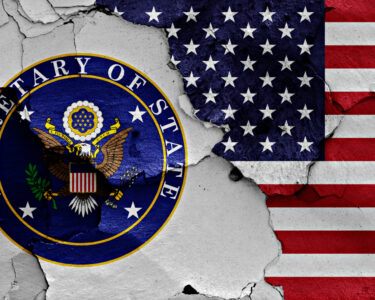The U.S. Supreme Court’s decision in Loper Bright Enterprises v. Raimondo and the U.S. Court of Appeals for the Fifth Circuit’s recent ruling in the Memorial Hermann Accountable Care Organization (MHACO) case collectively mark significant developments in administrative and tax law. These rulings create new challenges and uncertainties for tax-exempt organizations, including nonprofits and social welfare groups, as they navigate shifting legal standards for regulatory compliance and tax-exempt status.
Loper Bright: Ending Chevron Deference
For 40 years, Chevron USA, Inc. v. NRDC established a rule requiring courts to defer to federal agencies’ reasonable interpretations of ambiguous statutory provisions. This judicial deference allowed agencies to play a leading role in interpreting and implementing complex laws. However, the Supreme Court’s decision in Loper Bright overturned this precedent, replacing it with a stricter standard: judges now ask only whether an agency’s interpretation is consistent with the law, without any obligation to defer to the agency’s expertise.
This change is expected to:
- Increase Legal Challenges: Removing deference will likely lead to more regulatory uncertainty and lawsuits challenging agency rulemaking. This could delay regulatory reforms and guidance nonprofits rely on.
- Heighten Judicial Scrutiny: Courts will independently assess agency interpretations, which could result in inconsistent rulings and greater legal uncertainty.
- Encourage Forum Shopping: Opponents of regulations may file lawsuits in jurisdictions perceived as favorable to their views, further complicating regulatory compliance.
Implications for Tax-Exempt Organizations
One immediate consequence of Loper Bright is its potential impact on the Treasury Department and Internal Revenue Service (IRS). Historically, tax regulations issued by these agencies have often been upheld under Chevron deference as reasonable interpretations of complex statutes. Without this deference, courts are likely to scrutinize Treasury and IRS guidance more closely, increasing litigation risks for tax-exempt organizations and creating greater uncertainty.
For example, proposals to expand the definition of “donor-advisor” in donor-advised fund regulations, already criticized under Chevron, could face heightened judicial skepticism under the new standard. Similarly, other IRS rulings—such as those related to the employee retention tax credit—may now be more vulnerable to legal challenges.
Fifth Circuit’s Decision: A Blow to 501(c)(4) Organizations
The Fifth Circuit’s ruling in the MHACO case underscores the broader implications of Loper Bright for tax-exempt organizations, particularly those operating under section 501(c)(4). The court affirmed the denial of MHACO’s tax-exempt status, emphasizing a “substantial nonexempt purpose” test over the “primary purpose” test historically favored by the Treasury Regulations. This decision:
- Rejects Treasury Guidance. The Fifth Circuit’s reliance on Loper Bright to disregard Treasury Regulations marks a shift in how courts evaluate agency rules, favoring stricter statutory interpretation.
- Limits Nonexempt Activities. The ruling suggests that engaging in any substantial nonexempt activity—even if it’s not the organization’s primary purpose—could disqualify a 501(c)(4) organization from exemption.
- Creates Uncertainty. By rejecting established standards, the court’s decision leaves questions about permissible levels of nonexempt activities, including lobbying and political engagement.
Practical Considerations for Tax-Exempt Organizations
Tax-exempt organizations must now navigate a more complex legal landscape. Key takeaways include:
- Increased Legal Risk. Nonprofits and 501(c)(4) organizations should expect heightened scrutiny of their activities and prepare for potential litigation.
- Regulatory Uncertainty. With courts no longer deferring to agency expertise, tax-exempt organizations may face delays and inconsistencies in regulatory guidance.
- Consult Legal Counsel. Organizations should work closely with counsel to ensure compliance with evolving standards and to evaluate the impact of these rulings on their operations.
Looking Ahead
The combined effects of Loper Bright and the MHACO decision will likely reshape the regulatory environment for nonprofits and social welfare organizations. Congress may respond by drafting more precise laws to reduce ambiguity, while federal agencies must issue more detailed guidance to withstand judicial scrutiny. In the meantime, tax-exempt organizations must stay informed and proactive, balancing compliance with their mission-driven goals.
Ellis Carter is a nonprofit lawyer with Caritas Law Group, P.C., licensed to practice in Washington and Arizona. Ellis advises nonprofit and socially responsible businesses on federal tax and fundraising regulations nationwide. Ellis also advises donors concerning significant gifts. To schedule a consultation with Ellis, call 602-456-0071 or email us through our contact form.
👇Follow more 👇
👉 bdphone.com
👉 ultraactivation.com
👉 trainingreferral.com
👉 shaplafood.com
👉 bangladeshi.help
👉 www.forexdhaka.com
👉 uncommunication.com
👉 ultra-sim.com
👉 forexdhaka.com
👉 ultrafxfund.com
👉 ultractivation.com
👉 bdphoneonline.com




